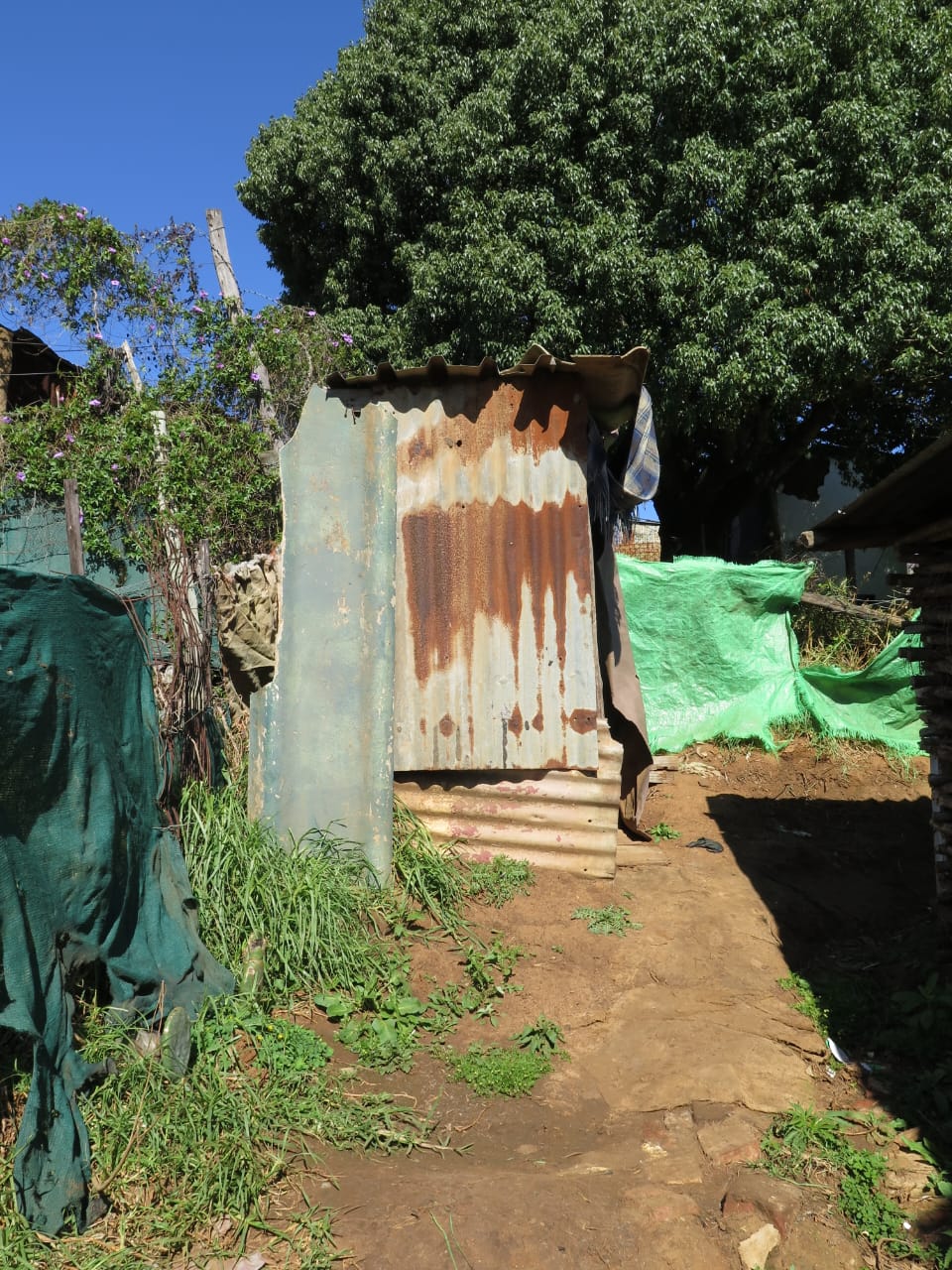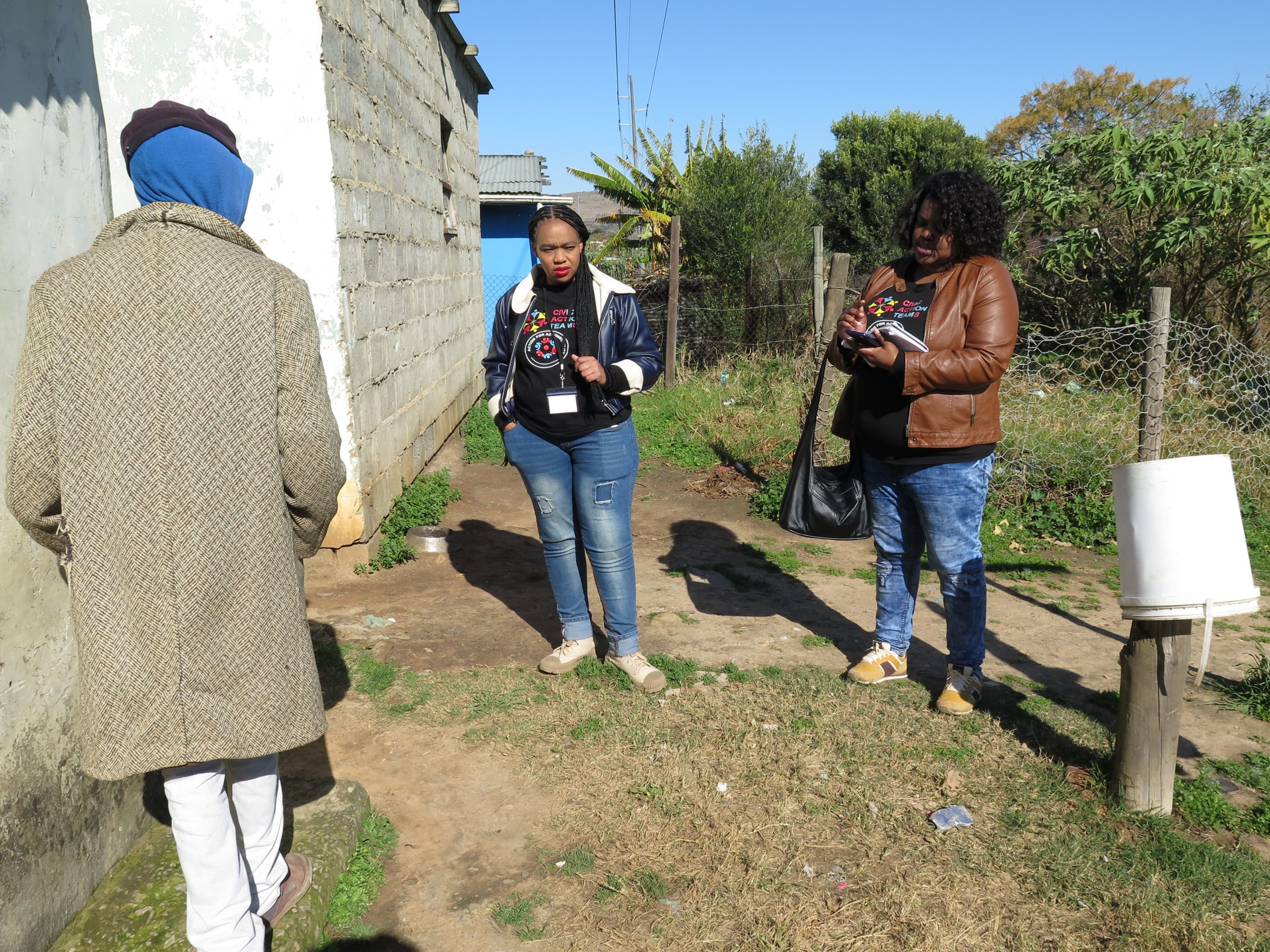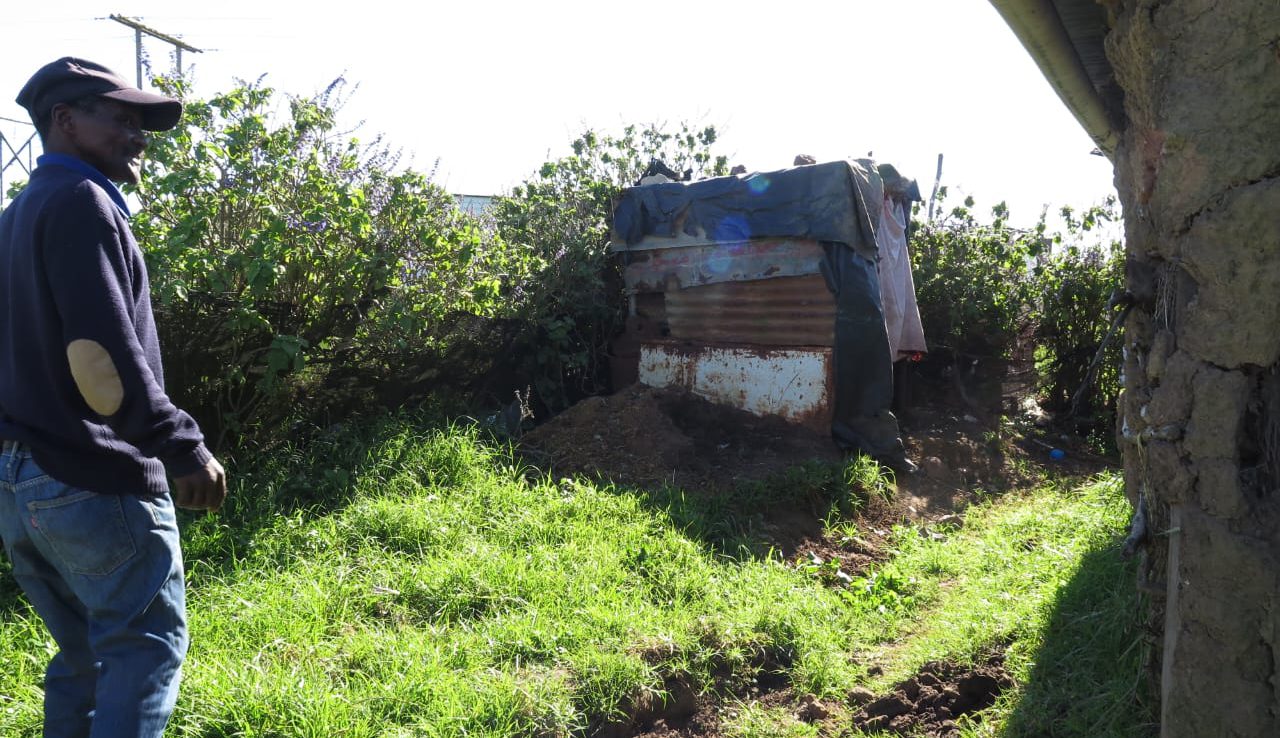By Lelethu Zono and Ntombentsha Yamiso
According to Section 10 of the South African Constitution, everyone has the right to have their dignity respected and protected. However, this is not the case for over 1,300 families in the Makana Municipality region.
Also, those who live in informal areas cannot fully exercise their constitutional rights because they continue to experience the strains of using pit toilets. Makhanda Action for Accountability (A4A) Media Fellows visited several affected areas in the township to get a closer look at this sanitation issue.
N Street, situated in Tantyi Location, residents use bucket toilets and express that it is an unpleasant experience. Although the houses near the end of the street were built in the 1990s, the Municipality has failed to prioritise them with proper flushing toilets.
According to research by the Department of Statistics South Africa in 2020, Makana Municipality is ranked 7 for having the highest bucket toilets in the country.
Ntomboxolo Yamiso, N Street resident, and her parents have lived there for 23 years. She says that the Municipality promised to build toilets, but nothing has materialised.
Yamiso says that she would like the Municipality to prioritise building toilets because the inconsistent collection of buckets is a significant problem.
“This problem affects us badly; we have the elderly and children in the area, and it gets worse with flies and other insects when it is hot. Even if the Municipality does not build us RDP houses, here we really need flushing toilets,” says Yamiso.
Unemployed resident Michael Madinda has been struggling to cope with the bucket system service as bucket collection has been inconsistent.
Madinda says that residents can go months without having their toilet buckets collected, forcing them to find ways to dispose of human waste.
“We go for even three months without bucket collection and get no communication about it. What am I supposed to do with a bucket full of human waste? So, when it is full, we throw it in the (Matyana) stream at the back of the yard,” said Madinda.

The Matyana stream runs into Makhanda from the northeast, passing through the township communities to the suburban areas. There have been instances where E.coli and other bacteria have been found in it, which makes it a serious issue that affects the environment, health and overall well-being of the local population. The poor sewage and water supply infrastructure presents an excellent water contamination risk.
Makana Municipality’s Environmental Manager, Ndumiso Nongwe, says the Matyana stream is highly polluted.
“Even livestock and pets drink from the stream, and that could cause diseases in animals and eventually affect people. Sometimes, you see children playing and even swimming in the stream. Even though people do not drink from the stream, it is not supposed to be this polluted,” says Nongwe.
In the current financial year’s final Integrated Development Plan (IDP), the Makana municipality has prioritised the eradication of bucket toilets in Wards 1, 2, 7, 9, 10 and 11, but developments are yet to take off.
The lack of action by the Makana Municipality in implementing proper sanitation contravenes Section 24 of the Bill of Rights, which states that Everyone has the right to:
(i) an environment that is not harmful to their health or well-being, and
(ii) Protect the environment for the benefit of present and future generations through reasonable legislative and other measures that prevent pollution and ecological degradation, promote conservation, secure ecologically sustainable development and use of natural resources while promoting justifiable economic and social development.
The Makana Municipality’s Communication Office had been contacted for comment but have not responded to CivActs at the time of publishing.
Lelethu Zono and Ntombentsha Yamiso are CivActs members and Media Fellows in the Makhanda Action for Accountability (A4A) project at the Public Service Accountability Monitor (PSAM).



